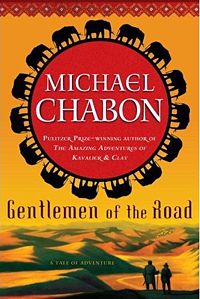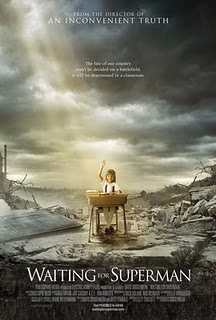Just a quick link for you to enjoy. Every day in my job I fight against the prejudice of musicians against music from the past century. While Jackson Pollack's and Robert Rauschenberg's paintings sell for millions and contemporary literature is consumed every day, contemporary music seems to languish because people just don't know about it. I'm always amazed to watch how any non-musician students are immediately excited by modern music more than that of the classical period.
One of my favorite writers on contemporary music is Alex Ross (no, not that Alex Ross), the music reviewer for the New Yorker. He has a new book out this month (and if you're shopping for Christmas presents for me, here's a big hint) that beautifully places music of the past century in its historical, cultural, political context. He talked a bit about the phobia towards music from the past 100 years this afternoon on All Things Considered and you should really give it a listen.
Self-doubt in the tech industry
2 years ago




2 comments:
The comparison doesn't seem quite fair: sure there are crazy rich people that may pay millions for an original Pollock, but the person on the street will often ask incredulously, "Someone was willing to pay even five bucks for that?" If there were the musical equivalent of a rarefied artifact that could be auctioned off (say, a Schoenberg album that could only be listened to at one location (and couldn't be copied), with no other version available to be heard except for the most static-filled version imaginable (i.e., the equivalent of how a newspaper photo might give the general idea of what a painting looks like); and no, a score doesn't count as an equivalent object), then some rich person would likely spend millions on it, because that's what rich people apparently do.
And the contemporary literature that actually sells isn't primarily the really interesting stuff that pushes formal boundaries and breaks all the rules; there may be a couple exceptions, but most semi-experimental lit that actually sells is highly narrative-based, just like 20th century music that most people like is highly melody-based and in conventional tonal structures. For example, the most recent book of Charles Bernstein, highly regarded as one of the most innovative poets of the latter 20th century, was released last year, and can't crack the top 650,000 on Amazon's ranking. Why? Because it's non-narrative poetry, and because it's kinda strange poetry that most people don't really understand.
I know nothing about the relative popularity of different eras of music within the context of a professional place like the music department in which you work, but I tend to think that pretty much all 20th century art forms are equally inscrutable (or not) to the average person, and equally valued (or not). But of course, Ross (whom I've also enjoyed reading in The New Yorker) has to make a living too, so he has to market his book as if there is a much bigger distinction between art forms than probably actually exists.
P.S. Just recently found your blog; greetings from your old stomping ground.
Kyle,
Glad you found us and good to hear from you. I see, and agree with, many of your points, especially in poetry which has long suffered as music has. But the lag time in musical acceptance seems much greater than in other fields. Novels and poetry and art from the turn of the century are routinely taught in high schools and even enjoyed by some high schoolers, but when was Schoenberg actually taught at that level? People recognize the importance of Pollack more than, say, John Cage or Morton Feldman, who were friends and artistic contemporaries with the Abstract Expressionists. People may not like Pollack, but they still study him and pack out museums when they have retrospectives of him (or movies about him).
I guess I just find it strange that you can obtain a Ph.D. in this country without ever studying music, but almost every high school educated person has at least a passing knowledge of some painting and literature in the 20th century.
Post a Comment